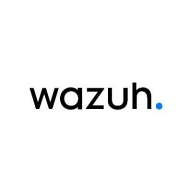

Anomali and Wazuh are competing cybersecurity platforms, each offering distinct advantages. Wazuh has an edge due to its open-source capabilities and cost-effectiveness.
Features: Anomali offers advanced threat intelligence, machine learning analytics, and seamless integration with existing security infrastructures. Wazuh features powerful intrusion detection, compliance management, and a centralized open-source platform for configuration.
Room for Improvement: Anomali could enhance its cost structure to become more accessible. It may also benefit from improving ease of integration with newer technologies and providing more flexible deployment options. Wazuh might enhance its user interface for better accessibility, provide more intuitive setup processes, and strengthen its technical support services to assist less technical users.
Ease of Deployment and Customer Service: Anomali focuses on integration within existing environments with robust resources and support. Wazuh is known for its straightforward setup and strong community support, although optimal configuration may require advanced technical knowledge.
Pricing and ROI: Anomali involves higher upfront costs due to its commercial licensing but offers substantial returns through enhanced security insights. Wazuh offers a lower setup cost with significant ROI for budget-conscious businesses due to its open-source nature.
| Product | Market Share (%) |
|---|---|
| Wazuh | 6.4% |
| Anomali | 1.1% |
| Other | 92.5% |
| Company Size | Count |
|---|---|
| Small Business | 1 |
| Midsize Enterprise | 1 |
| Large Enterprise | 5 |
| Company Size | Count |
|---|---|
| Small Business | 27 |
| Midsize Enterprise | 15 |
| Large Enterprise | 8 |
Anomali delivers advanced threat intelligence solutions designed to enhance security operations by providing comprehensive visibility into threats and enabling real-time threat detection and management.
Anomali stands out in threat intelligence, offering an innovative platform that integrates data to identify and analyze threats effectively. It enables teams to streamline threat detection processes and respond to incidents with increased agility. With a focus on accuracy and efficiency, Anomali supports cybersecurity professionals in making informed decisions to safeguard their networks consistently.
What are Anomali's core features?In industries like finance and healthcare, Anomali is implemented to address specific challenges like compliance and data protection. By using this platform, organizations gain the ability to adapt to evolving threats, ensuring robust and adaptable security postures tailored to industry demands.
Wazuh offers an open-source platform designed for seamless integration into diverse environments, making it ideal for enhancing security infrastructure. Its features include log monitoring, compliance support, and real-time threat detection, providing effective cybersecurity management.
Wazuh stands out for its ability to integrate easily with Kubernetes, cloud-native infrastructures, and various SIEM platforms like ELK. It features robust MITRE ATT&CK correlation, comprehensive log monitoring capabilities, and detailed reporting dashboards. Users benefit from its file integrity monitoring and endpoint detection and response (EDR) capabilities, which streamline compliance and vulnerability assessments. While appreciated for its customization and easy deployment, room for improvement exists in scalability, particularly in the free version, and in areas such as threat intelligence integration, cloud integration, and container security. The platform is acknowledged for its strong documentation and technical support.
What are the key features of Wazuh?In industries like finance, healthcare, and technology, Wazuh is utilized for its capabilities in log aggregation, threat detection, and vulnerability management. Companies often implement its features to ensure compliance with stringent regulations and to enhance security practices across cloud environments. By leveraging its integration capabilities, organizations can achieve unified security management, ensuring comprehensive protection of their digital assets.
We monitor all Security Information and Event Management (SIEM) reviews to prevent fraudulent reviews and keep review quality high. We do not post reviews by company employees or direct competitors. We validate each review for authenticity via cross-reference with LinkedIn, and personal follow-up with the reviewer when necessary.